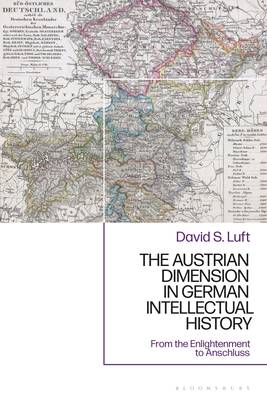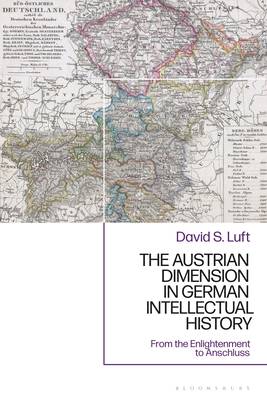
- Afhalen na 1 uur in een winkel met voorraad
- Gratis thuislevering in België vanaf € 30
- Ruim aanbod met 7 miljoen producten
- Afhalen na 1 uur in een winkel met voorraad
- Gratis thuislevering in België vanaf € 30
- Ruim aanbod met 7 miljoen producten
Zoeken
The Austrian Dimension in German Intellectual History
From the Enlightenment to Anschluss
David S Luft
Paperback | Engels
€ 67,95
+ 135 punten
Omschrijving
Tracing Austrian intellectual life from Maria Theresa to Hitler's annexation of Austria and Czechoslovakia, this innovative book offers a precise and engaging account of Austrian intellectual history since the Enlightenment.
Here, David S. Luft begins by locating his narrative in the region known as Cisleithanian Austria, the area to the west of the Leitha River that was the basis for the modern Austrian state after 1740. Chapter 2 provides a history of the German-speaking intellectual life of these central lands of the Habsburg Monarchy (Austria and Bohemia) from the Enlightenment to annexation by Nazi Germany. Chapters 3 to 5 identify the most important philosophers, writers, and social thinkers who contributed to Austrian intellectual life in the period between 1740 and 1938/1939 and address the intellectual significance of their work.
Elegantly written and meticulously researched, Luft's book brings out the contributions of major figures such as Wittgenstein, Hofmannsthal, Musil, Kafka, Rilke, and Freud, but also draws attention to less well-known figures such as Bolzano, Brentano, Grillparzer, Stifter, Broch, and Hayek.
Here, David S. Luft begins by locating his narrative in the region known as Cisleithanian Austria, the area to the west of the Leitha River that was the basis for the modern Austrian state after 1740. Chapter 2 provides a history of the German-speaking intellectual life of these central lands of the Habsburg Monarchy (Austria and Bohemia) from the Enlightenment to annexation by Nazi Germany. Chapters 3 to 5 identify the most important philosophers, writers, and social thinkers who contributed to Austrian intellectual life in the period between 1740 and 1938/1939 and address the intellectual significance of their work.
Elegantly written and meticulously researched, Luft's book brings out the contributions of major figures such as Wittgenstein, Hofmannsthal, Musil, Kafka, Rilke, and Freud, but also draws attention to less well-known figures such as Bolzano, Brentano, Grillparzer, Stifter, Broch, and Hayek.
Specificaties
Betrokkenen
- Auteur(s):
- Uitgeverij:
Inhoud
- Aantal bladzijden:
- 246
- Taal:
- Engels
Eigenschappen
- Productcode (EAN):
- 9781350202245
- Verschijningsdatum:
- 29/12/2022
- Uitvoering:
- Paperback
- Formaat:
- Trade paperback (VS)
- Afmetingen:
- 156 mm x 234 mm
- Gewicht:
- 349 g

Alleen bij Standaard Boekhandel
+ 135 punten op je klantenkaart van Standaard Boekhandel
Beoordelingen
We publiceren alleen reviews die voldoen aan de voorwaarden voor reviews. Bekijk onze voorwaarden voor reviews.








